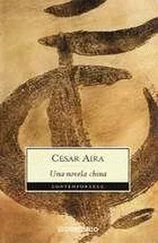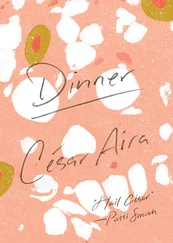The aforesaid occurred to me while I was considering, with amazement, the quantity of things that were happening to me while nothing was happening. I noticed this as my pen was moving: there were thousands of tiny incidents, all full of meaning. I’ve had to pick and choose carefully, otherwise the list would be endless. But it’s normal for more things to happen when you’re traveling than during the normal course of habitual life. Not only because they actually happen because one is on the move and
actively going out looking for things, but because our perceptions awaken when we leave our habits behind, we see more and hear more, we even dream more. For someone who travels as little as I do, for someone who leads such a routine life, a trip can make an enormous difference; it is the objective equivalent of cerebral hyperactivity.
I am selecting, somewhat haphazardly, the facts I use to carry forward this story of the days I spent waiting while the cloning process was taking place at the top of the mountain, focusing exclusively on the translation possibilities. I should mention that the literary conference I had been invited to attend was taking place concurrently, but I was so detached from it I would not have been able to name even one of the subjects of its sessions and panel discussions. In one, however, I was a participant, and although this participation, fortunately, was passive and indirect, I had no choice but to know about it. It was a marginal activity, attendance optional, held outside the framework of the official sessions; it consisted of the staging of one of my plays by the University Theater Group of the Humanities Department. They had, apparently, already staged other plays of mine, and this time they had chosen one called In the Court of Adam and Eve. It was not the one I would have chosen, but I did not object when I saw it on the program they sent me months earlier. As soon as I arrived they asked me to attend the final rehearsals, approve the costumes and sets, meet the actors. . I politely declined. I wished to be merely another member of the audience. That last statement was made out of a sense of obligation, for I didn’t care whether I saw it or not, and if it had been up to me, I wouldn’t have gone; but it turned out to be true. As far as their request that I speak to the cast about my motivation for writing it, firmer reasons accompanied my refusal. The first one, I considered it inadvisable to explain; the others had to do with the amount of time that had passed since I’d written it, and how totally I had forgotten it. We left it at that, and though they were probably disappointed, they did not seem offended.
Nevertheless, I did intervene on one point. The play would be performed for the general public in a newly built theater, but only those attending the conference would see the preview, and that performance could be held in a different venue, possibly in the open air, thereby taking full advantage of the climate. They asked my opinion, and in this case I felt I did have something to say. They expected me to come up with something unexpected and extravagant, so I chose the airport, which is right downtown because Mérida takes up the entire small valley in which it is situated. They liked that idea, got authorization, and made all the arrangements.
The play dates back to my Darwinian period, but it foreshadows my subsequent work with clones. Within the entire body of my work, it is an exception: I have an aversion to what is now called “intertextuality,” and I never make literary allusions in my novels or plays. I force myself to invent everything; when the only choice is to recycle something that already exists, I prefer to take recourse in reality. But I allowed myself this exception because Genesis is a special case, even if only for its title. If inventiveness, or the transmutation of reality, is part of a broader mechanism of literary genetics, Genesis could well be considered the master plan, at least among us Westerners.
Saying that this short play foreshadowed my subsequent scientific work is, to tell the truth, an understatement. The mere idea of Adam and Eve’s existence, of humanity (the species) retroactively reduced to a single couple, gives rise to genetics. I would even say that it is as far as the imagination can go in this field. Genetics is the genesis of diversity. But if diversity has nobody on whom to spread itself out, it turns on itself, gets tangled up in its own general particularity, and therein the imagination is born.
I remember how one critic, at the play’s debut many years ago, called it “a beautiful love story.” In retrospect, I have found in that play the key to my difficulty in speaking about love other than through complex translations of perspectives. The coincidence of Adam with Eve in a world where it was unnecessary to seek each other out through the exhaustive labyrinths of the real is one theory of love. The passage from Adam to Eve under the guise of the fable of the rib was simply cloning. Once both characters were in the scene, cloning collapsed, decisively. The level of the fable guaranteed it would belong to an inaccessible past, a past that could only be captured through the imagination or through fiction. I believe that this myth is what turned the past into a mental construct; if not for its intercession, today we would perhaps be dealing with the past as simply one more reality, like any other object of perception.
As it turned out, sex remained the only path to reproduction. Sex, and the concomitant maneuverings of love. The scenes with Adam and Eve occurred in such close proximity to cloning — of which they had been involuntary protagonists — that the fable contaminated their conjugal passion. To the same degree I had made sexuation a personal taboo, I approached them with the trembling of monstrous familiarity.
I now begin to remember in greater detail the period of my life when I wrote that piece. I understand why I wanted to obscure it behind a cloud of voluntary oblivion, because it was a dark moment in my life, perhaps the worst, the most disturbed. My marriage had undergone some very demanding trials, I was obsessed with divorce, which, at the same time, seemed the only solution and caused me unendurable fear. I began to drink too much, and as my constitution is averse to alcohol, I began to develop rather grotesque symptoms; the worst was a contraction of my left leg, which began to behave as if it were eight inches shorter than my right; as far as I know, my two legs are exactly the same length, but for months I was going around with quite a conspicuous limp. This, on top of everything else, led me to take drugs (the only time in my life I’ve ever done so). I became addicted to proxidine and so severely abused it that I would have died of an overdose if I had not finally found a way out.
Part of my recovery, in any case the testament to it, was the writing of this play. Which explains my use of a preexistent myth. This may seem like excessive justification for my falling into a literary trap I deplore, but so it goes, that’s the way the cookie crumbles. Deep down, the marriage of Adam and Eve was the myth of absolute contingency: sex preceded and made possible by cloning; proxidine produced the same effect in my cells five times a day. But once everything reverted to literature, my recovery was complete.
In another confluent episode, which memory now holds out to me in a gesture that seems to say, “There’s more where that comes from,” I had a kind of fleeting hallucination, though in the midst of so many perceptual changes brought about by my drug use, I didn’t pay much attention to it. Every time I closed my eyes I would see two men hurling themselves against each other, like two swordsmen, but without swords; I would see them in profile, sharply outlined, both dressed in black. The scene had very little depth, almost like an animated painting, but it was infused with a terrible level of violence.
Читать дальше












